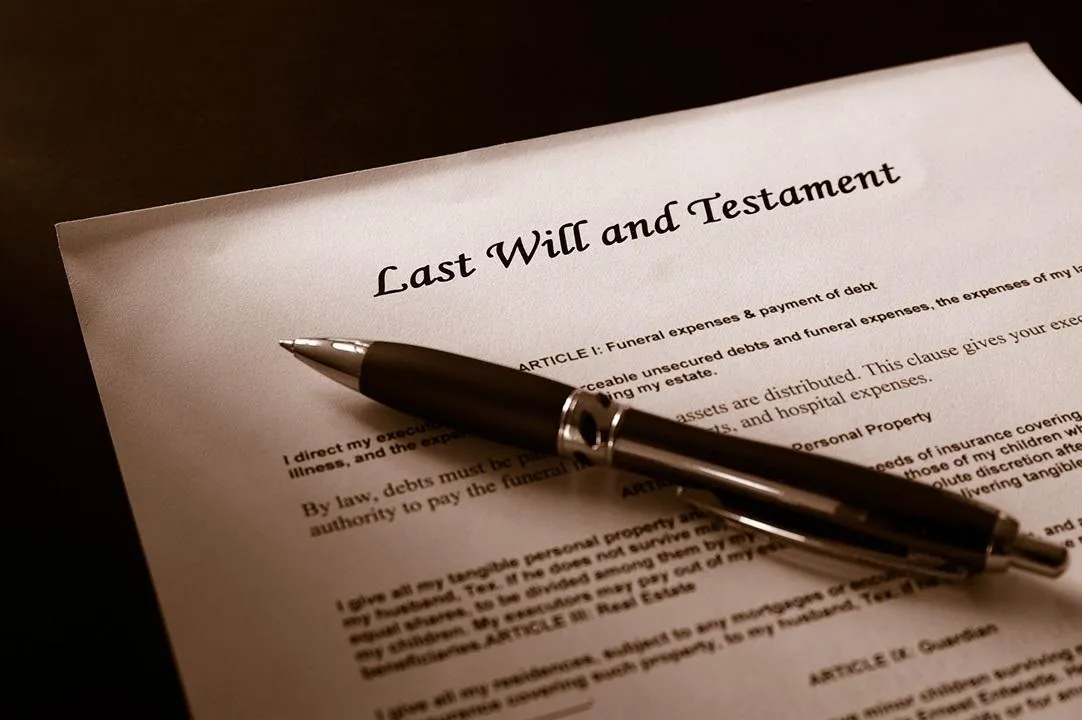Selling a Home in Probate
Understanding how property sales work during probate in Massachusetts and how to make the process as smooth as possible.
Why Probate Property Sales Are Different

Selling a home during probate is not the same as a typical real estate transaction. Executors must follow court rules and sometimes obtain special authority before listing the property. Without proper approvals, a sale may not be valid.
Families often find this step stressful because the home is usually the largest estate asset, and selling it can be both emotional and legally complex. Having the right guidance can help avoid delays and costly mistakes.
Executor Authority
The executor, known in Massachusetts as the Personal Representative, is the only individual with the legal authority to manage and sell estate property. Their powers begin only after they are officially appointed by the Probate Court, even if they are named in the will. Until the court issues an order, heirs and family members cannot act on behalf of the estate.
Authority With a Will (Testate Estates):
If the will names a Personal Representative, that person has priority for appointment.
Some wills grant the executor “power of sale” — meaning they may sell real estate without returning to court for permission, as long as it benefits the estate.
If the will is silent about selling property, the executor must seek a License to Sell before proceeding with a real estate transaction.
Authority Without a Will (Intestate Estates):
Massachusetts law sets an order of priority for who may serve as Personal Representative, starting with the surviving spouse and children.
Once appointed, that person assumes authority, but because there is no will, they typically must petition the court for a License to Sell before transferring or selling real estate.

Limits of Executor Authority:
The executor must act in the best interest of the estate and its heirs, not their own personal preferences.
They cannot distribute property or sell assets before paying debts, taxes, and expenses of administration.
Major actions like selling real estate or dividing disputed property require either express authority in the will or court approval.
License to Sell
A License to Sell is a court order that gives the executor (Personal Representative) permission to sell estate property. Even if heirs agree that the home should be sold, the executor cannot move forward without the proper legal authority.
You will need a License to Sell in situations where:

The will does not grant the executor “power of sale.”
The estate is intestate (no will).
There are multiple heirs with interests in the property.
The property must be sold to pay debts, expenses, or distribute proceeds fairly among heirs.
How to Obtain a License to Sell:
File a Petition with the Probate Court – The executor submits a formal request asking the court for permission to sell the property.
Provide Notice to Interested Parties – All heirs, beneficiaries, and other interested persons must be notified of the petition.
Court Review – The court reviews the request to ensure the sale is in the estate’s best interest and that no heir’s rights are being violated.
Issuance of the License – Once approved, the court grants the License to Sell, which authorizes the executor to list and sell the property.
Key Considerations:
The sale must usually be at fair market value to protect heirs and creditors.
Some courts may require an independent appraisal or proof of listing activity.
The executor is responsible for ensuring the transaction complies with all court conditions before closing.
The process can feel intimidating, but with proper guidance it is straightforward and ensures the property sale is valid, enforceable, and free of legal challenges later on.
READY TO GIVE US A TRY?
Know Your Options Before You Sell
💡 “Not sure what your probate property is worth? Get a complimentary home value estimate and learn your options.”
Steps in a Probate Property Sale
In addition to completing the initial probate tasks, the executor has ongoing responsibilities throughout the administration of the estate. These duties ensure the process remains transparent, fair, and legally compliant until the estate is officially closed:

Keeping careful records of all transactions
Every payment, deposit, and distribution made on behalf of the estate must be documented. Detailed records protect the executor from liability, help resolve questions from heirs, and are often required by the court when submitting final accounts.

Filing annual accounts with the court
If probate lasts longer than a year, the executor may need to file interim or annual accounts showing income received, expenses paid, and distributions made. This provides transparency and demonstrates that estate funds are being handled responsibly.

Resolving disputes or creditor claims
Creditors and heirs may challenge parts of the probate process. The executor must work to resolve these disputes fairly and in compliance with the law, often with the assistance of the Probate Court. Failure to address claims properly can cause delays and create personal liability.

Seeking court approval for property sales
If the executor needs to sell real estate or other significant assets, court approval may be required — especially if the will does not grant a power of sale. Petitioning the court for a License to Sell ensures the sale is legally valid and binding.

Ensuring final distributions are documented with receipts
When assets are distributed to heirs or beneficiaries, the executor must obtain signed receipts or acknowledgments. These documents serve as proof that distributions were made correctly.

Communicating regularly with heirs and beneficiaries
The executor should keep heirs and beneficiaries updated on the progress of the estate. Clear, consistent communication helps prevent misunderstandings, builds trust, and reduces the chance of disputes. Providing updates keeps everyone informed and reassured.
This process can take longer than a typical home sale, but with proper planning, it can be completed smoothly and successfully.
Common Challenges in Probate Sales
Selling a probate property often comes with hurdles that don’t exist in standard transactions. Some of the most common include:

Disagreements among heirs
Family members may not agree on whether to sell the property, what price to accept, or how quickly the process should move. These disputes can create delays or even force the court to intervene.

Homes in poor condition
Many estate properties are older or have not been updated in years. Some may require repairs, clean-outs, or even code compliance work before they can be marketed. Executors must balance whether to invest in improvements or sell “as is.”

Confusion about authority
Executors sometimes assume they can sell a home right away, only to discover they lack power of sale and must obtain a License to Sell. This misunderstanding can waste time and frustrate buyers if not clarified early.

Pressure to sell quickly
If the estate has debts, taxes, or ongoing expenses like a mortgage, executors may feel pressured to sell quickly. This urgency can create stress and, if not managed carefully, may result in accepting offers below market value.

Court delays
Even when everything is done correctly, Probate Court timelines can slow the process. Waiting for hearings, approvals, or court-signed documents can stretch a transaction out longer than a typical home sale.

Emotional attachment
For many families, a home is more than an asset — it holds decades of memories. Emotional attachment can make it difficult for heirs to agree on selling, setting a price, or preparing the property for buyers. This emotional layer often complicates an already sensitive process.
Ready to Discuss Your Probate Property?
If you’re handling an estate with real estate, let’s talk about your options. Schedule a free consultation today and get clarity on the next steps.
